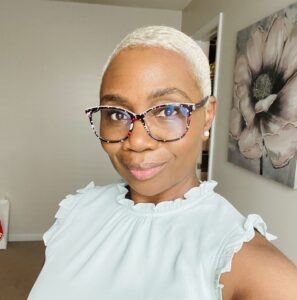Self-love. Almost makes you feel uncomfortable just reading the phrase, doesn’t it? We know we’re supposed to be kind and compassionate to others. But loving yourself? Isn’t that … well, somehow a little selfish?
It is. And that’s exactly the point. There are times when “selfish” can be very, very good. When you’re in the midst of a healing crisis … trying like the dickens to work your way out of it and back to full, radiant health and wellness … that’s one of the times.
One of my regular blog readers recently sent in a great question: “How can there be so many of us that don’t embrace self love?” What I got out of her question was a request for some suggestions on making self-love more accessible. With that in mind, we’ll explore a few key tips.
- Learn the subtle distinction between self-love and self-absorption. In my world, self-love means you care for yourself as you would a beloved other. You create a nurturing and safe environment for yourself, attend to your physical, emotional, and spiritual needs, and place yourself in the presence of those who support your highest good. From a place of self-love, you are healthy and balanced enough to allow your grace and light flow over onto those around you, spreading the joy.
Contrast that with self-absorption, meaning that in your mind, “it’s really all about you.” Not healthy, not balanced, not nurturing, and certainly no extra grace for the guy next door. Let’s just back away and forget we mentioned it.
While a brief article like this one is by necessity just an introduction, the issue of self-love is critical to your health and well-being. You teach other people how to treat you. Until you can treat yourself with generosity and compassion, you’ll be walking a rough road. Professional therapists, counselors, clergy persons, and teachers or coaches are available to support your transition into a healthier state. If you’re struggling to reach a place of self-love, please find someone you trust to support you on your journey.
Elizabeth Eckert coaxes, cajoles, and gently guides the creation of healing intent. She’s the founder of http://www.wordcures.com and author of Word Cures: How to Keep Stupid Excuses From Sabotaging Your Health. Align your whole self for health … starting today! Share “Arielle’s” real-life story: The power of positive healing intention.
Article Source: http://EzineArticles.com/?expert=Elizabeth_Eckert
http://EzineArticles.com/?Self-Healing—Overcoming-Obstacles-to-Self-Love&id=1854324

Samantha A. Gregory is an author, consultant, and speaker. She’s a single-mom lifestyle, money, and parenting expert featured in The Washington Post, The New York Times, Essence Magazine, HuffPost, ABC News, and Mint.com.
Samantha founded the award-winning RichSingleMomma.com™, the first online magazine featuring personal finance, parenting, and personal development content and courses for single moms.
She aims to inspire women who are ready to thrive and not just survive in their single motherhood journey. Connect with her on Instagram @richsinglemomma.




Just what I needed to read today. Thanks for sharing this article with us.
Thanks for sharing this article, Samantha!